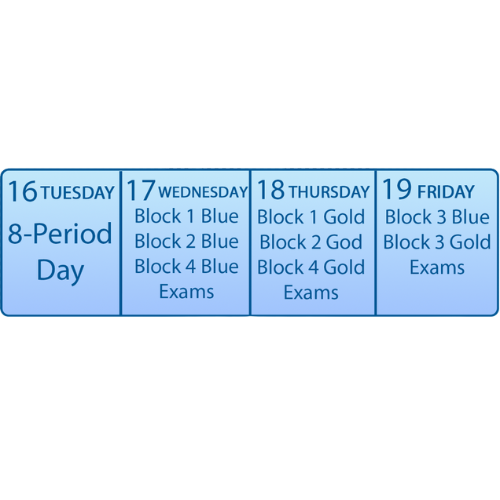Students taking Algebra 2 and/or students who are enrolled in Junior English will be required to take the Partnership for Assessment of Readiness for College and Careers (PARCC) test this spring.
The PARCC test is a mandatory state required assessment which will be replacing the previously required Prairie State Achievement Exam (PSAE). The test will also be administered via computer as opposed to Scantron. According to Philip Gartner, instructional supervisor of the Math Department, these tests will be harder as they will no longer solely be multiple choice.
“There could be multiple answers, there could be click and drag things […] just a lot of different ways they can ask questions and still have the computer grade it,” Gartner said. “They’re also looking at having questions […] where there would be a more complicated rubric and students would be doing more of a free response type answer.”
According to Gartner, these tests will probably take a longer time to complete than the PSAE did, as they are longer and a lot of students will be taking them. According to Susan Levine-Kelley, instructional supervisor of the English Department, these tests will take away a lot of in-class teaching time.
“The biggest concern is, what’s the payback for giving up all that instructional time and its hours of [that time],” Levine-Kelley said. “PARCC did some field testing last year all over the United States […] and one of the big pieces of feedback was [that] it takes too much time.”
According to Cameron Muir, associate principal of curriculum and instruction, just one test will range from about 100 minutes to as much as two hours. They will also be administered during the school day which could possibly cause conflicts with teaching schedules.
“[This] poses some difficulties [and] challenges in terms of scheduling,” Muir said. “We [are trying] to figure this out […] We’ll somehow [fit it in] during the school day.”
Many states, including Illinois, have become part of the PARCC program, which puts more states on the same level of testing. According to Muir, PARCC goes along with the Common Core State Standards Initiative. It aims to prepare students for college and future careers, similar to the goals of South’s curriculum.
“We might need to make some [small changes] here and there, but in general the curriculum we’ve had has been very robust and rigorous and it will continue to be so,” Muir said.
According to Muir, in the future colleges may no longer require students to take the ACT and will look at PARCC results instead. According to Gartner, this change may benefit both students and teachers by making a more accurate comparison between states as well as a more accurate showing of student results.
“I think schools would be able to get data more quickly and that data would hopefully be more useful than what we’ve gotten from the ACT,” Gartner said. “The ACT doesn’t provide us very itemized, specific information […] it doesn’t drill down very deep.”








